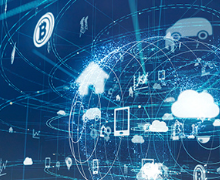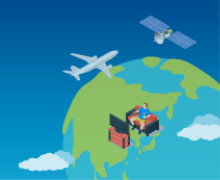- Sustainability
- Our Activity
- Future Stories Vol. 1 9 Materiality Themes and the Concept of Materiality
Future Stories Vol. 1
9 Materiality Themes and the Concept of Materiality
Until Formulation of Materialities: State of Mind When Identifying Materialities and Future Aspirations
“Future Stories” is a series in which we interview Group employees about initiatives that will lead to a future with “Space for your Smile.”
The Group promotes sustainability management based on our sustainability policy “Space for your Smile.” We have also identified 9 materiality themes formulated by management and employees.
In the first volume of the Future Stories series, we will share some of the interviews we conducted with officers and employees who were involved in identifying materialities. The following introduces the frank opinions of members who discuss their state of mind when first identifying materialities and their current ideas.
―――Interviewee (*positions are as of November 2022)

From left: Mitani, Taniguchi, Kobayashi, Kubota (on screen), Hori, Moriai, Kamo
- SKY Perfect JSAT Corporation
Corporate Administration Unit - Koji Taniguchi (Unit Leader)
Masanori Kobayashi (in charge of Materiality
*At time of materiality identification) - Space Business Unit
- Yutaka Moriai (Unit Leader)
- Media Business Unit
- Kazuo Kubota (former Unit Leader)
Mamoru Mitani (Unit Leader)
Tomokazu Hori (in charge of Materiality
*At time of materiality identification) - Moderator
- Hiroko Kamo, General Manager of Sustainability Department
―――Activities to identify materialities began in 2020. Could you please discuss your initial state of mind when assigned as a member involved in identifying materialities?
Taniguchi: Personally, I have always been concerned about environmental issues such as global warming. As I was learning about sustainability, I thought about the future of our children and their families in 10, 20, or 30 years from now. Doing so made me realize that sustainability is an extremely important issue.
Kubota: I previously participated in training in which I learned that sustainability initiatives are progressing around the world, led by Northern European countries. These efforts are based on the assumption that only companies that address sustainability will survive in society. Afterwards, I made an internal proposal for the Group to promote SDGs. That’s when I realized that sustainability activities were beginning at the Group.
―――Has your way of thinking changed while working to identify materialities?
Hori: I started looking at business from the perspective of resolving social issues. There is still room for the Group to work on linking business and sustainability, and to be more conscious of sustainability in our current and new businesses.
Kobayashi: I had believed that the only thing the Information Systems Division could do was use low-power consumption servers to reduce CO2 emissions. However, I am very glad that I now realize how the work of my division can be useful in a wide range of ways, such as initiatives (IT support) that lead to the active participation of human resources.
Taniguchi: The process of identifying materialities taught me that it is fine to consider the Group’s issues from a variety of perspectives, not just from the standpoint of my unit.
―――How can we connect materialities with each business?
Mitani: Although materialities have been identified, there are no specific rules which designate a certain way of implementing those materialities. Therefore, it is important for employees who are leaders in activities to be conscious of sustainability and make decisions as appropriate.
Moriai: When it comes to instilling materialities within the Group, it’s important to gradually help employees understand how the business in which they currently work can contribute to society. For example, we conduct a progress report on materialities once every six months. I hope that each division will use this opportunity to become aware of how their business is contributing.
―――What are your aspirations and ideas for the future?
Taniguchi: The Group has a Sustainability Department. However, I believe that we can realize even greater contributions to society by becoming a Group where there is no need to promote sustainability; that is, a Group where sustainability is a normal part of doing business.
(Interview held on November 15, 2022)
The Group will continue to actively promote sustainability management in order to evolve its efforts to address materiality themes and achieve further results. We will earnestly address these themes so that we can fulfill our responsibilities to the environment and society. At the same time, we will continue efforts to increase information dissemination and transparency in order to create understanding for sustainability, thereby ensuring that as many people as possible are interested in our efforts.




